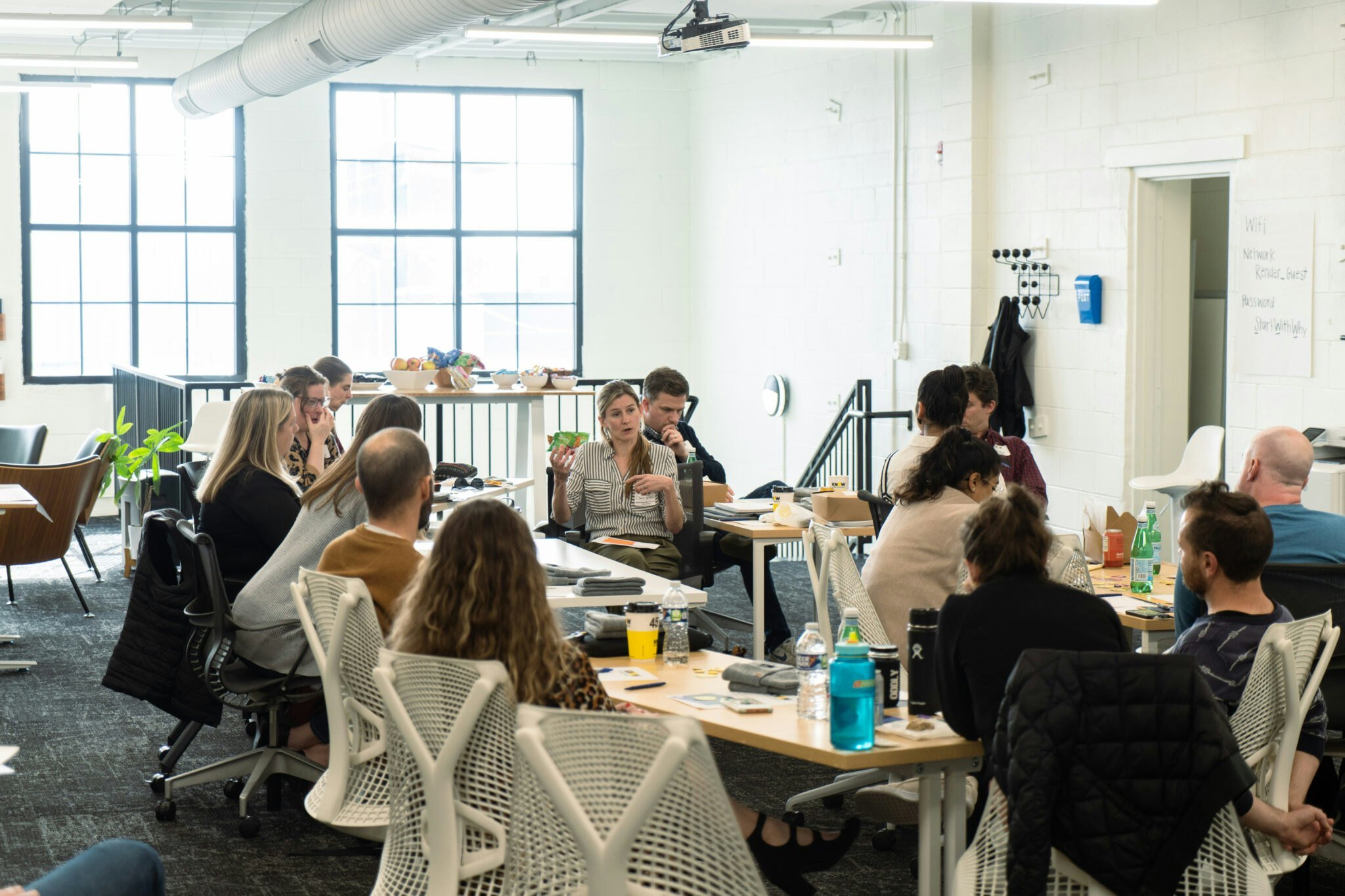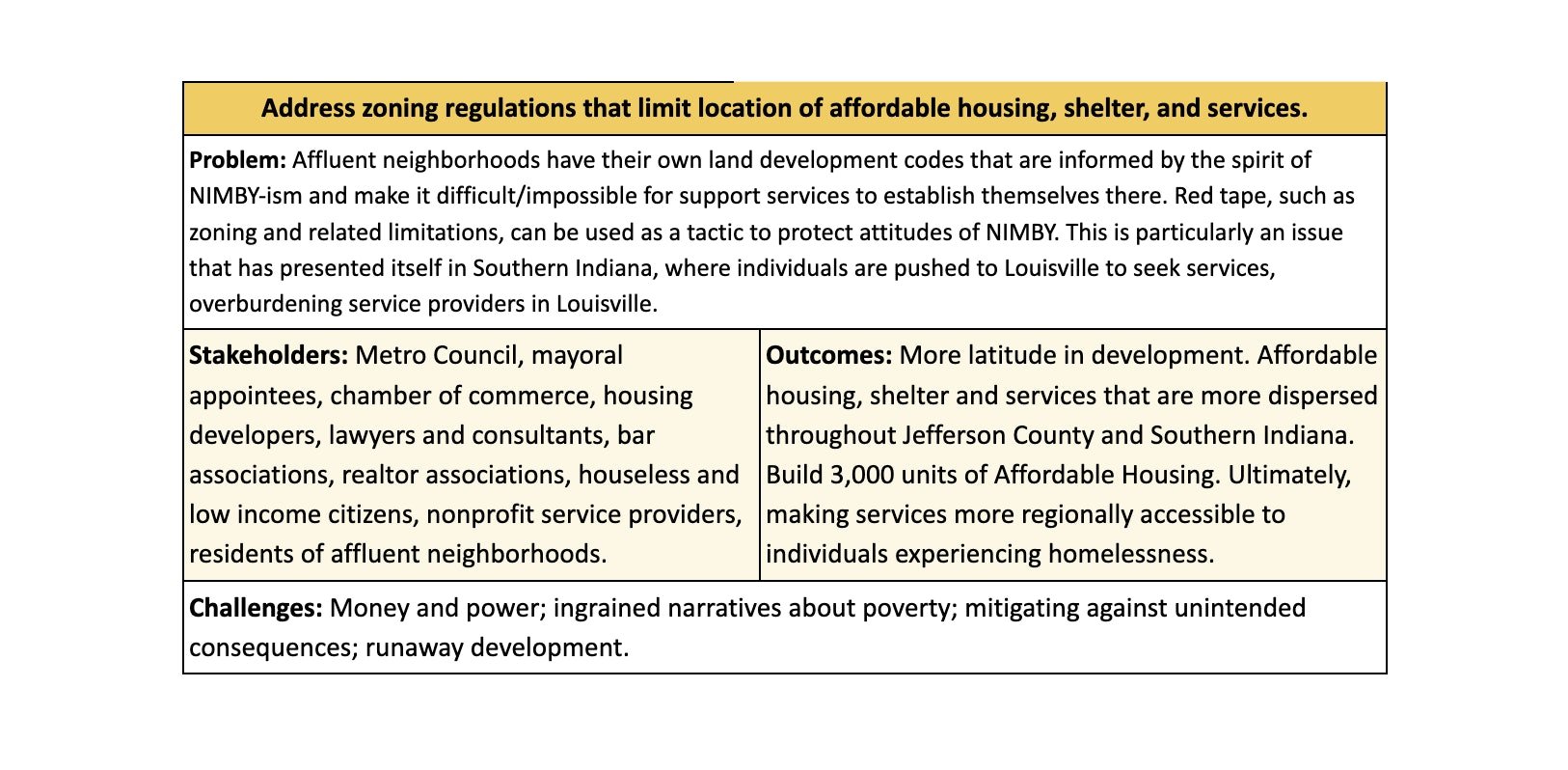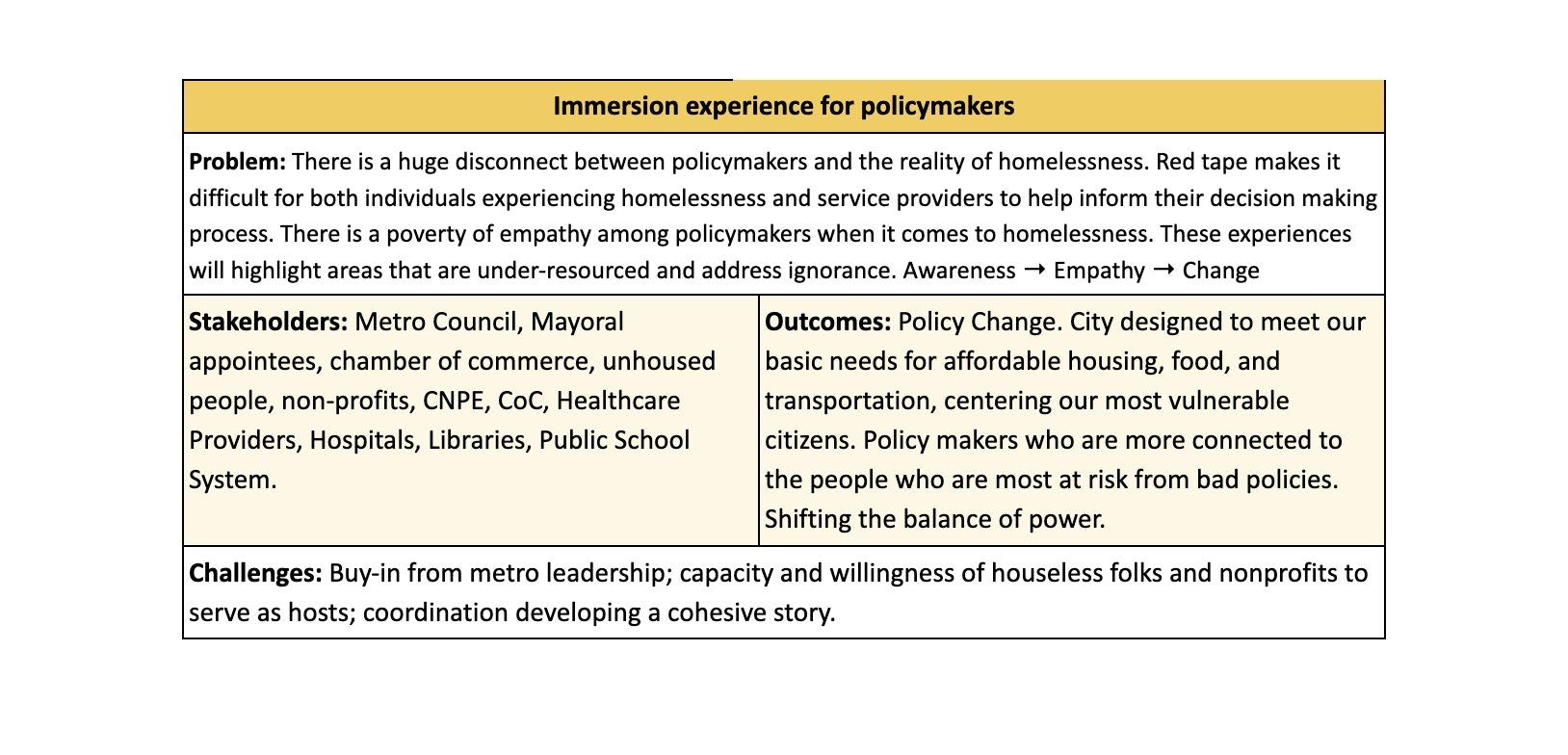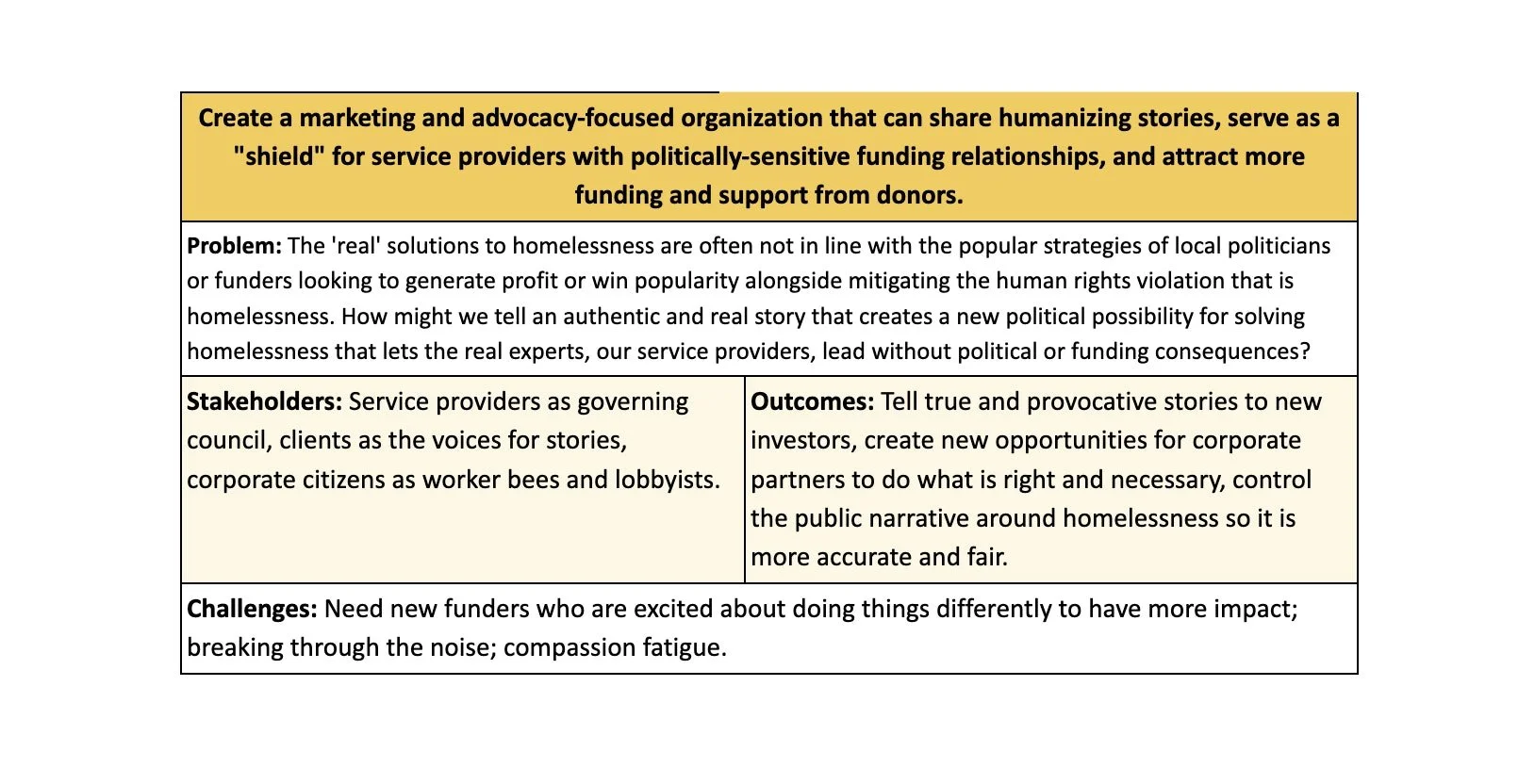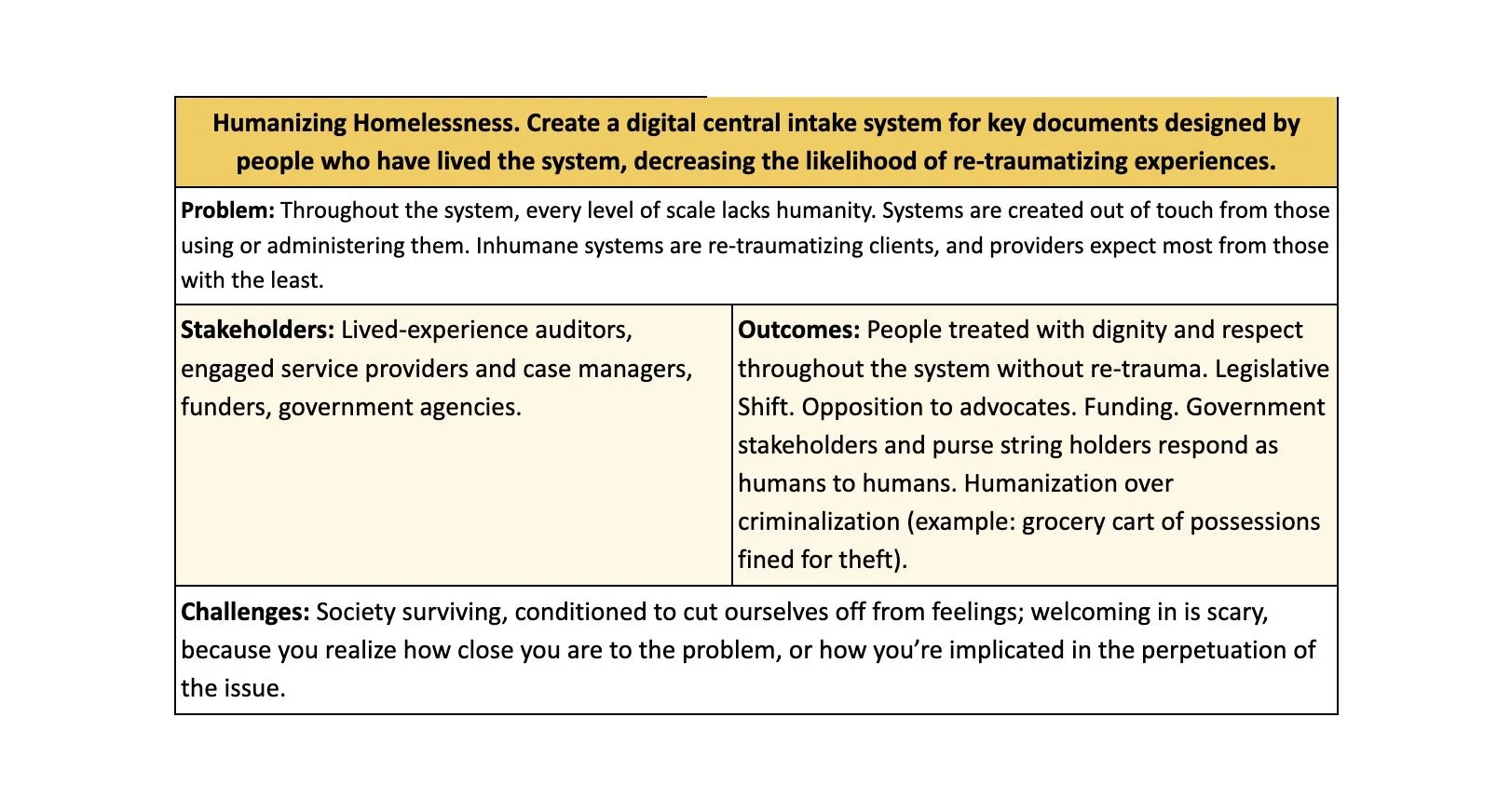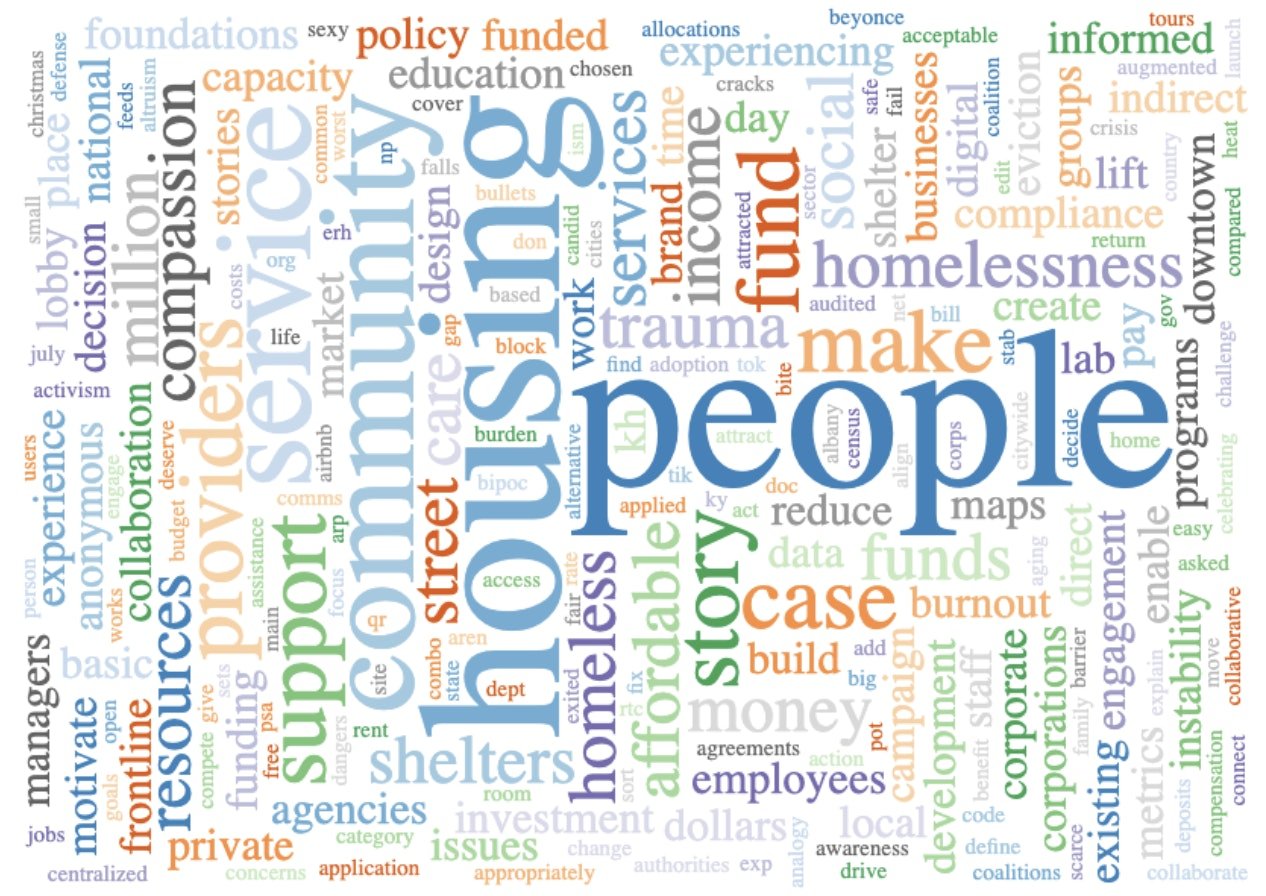Housing is a Fundamental Right
Catalyzing Community Thought and Action Around an Intractable Challenge
Access Ventures believes that housing is a fundamental human right. However, for thousands of individuals and families in the Louisville, KY region, this right remains out of reach. According to recent statistics, over 10,000 people in the region experienced homelessness in 2022 and homelessness in the Louisville Metro area has increased by 41% over the past 3 years.
The Louisville Metro area has one of the highest rates of unsheltered homelessness in the country, with an estimated 35% of homeless individuals living on the streets or in other unsheltered locations. Our region’s housing crisis is very real, and the need for effective policies and programs to address the root causes of homelessness and provide stable, affordable housing for all is urgent.
A little history
Know Homelessness, a branded public-education campaign incubated within Access Ventures, launched in 2020 with the goal to change the conversation around homelessness regionally. We worked with stakeholders across the region to tell the stories of individuals experiencing homelessness and dispel myths about homelessness that are widely accepted but untrue and inhibitive to properly supporting members of our community experiencing homelessness.
We partnered with local creative agency Kertis Creative to bring these stories to life. Several local coffee shops became ambassadors of the campaign and swapped their usual coffee cups to Know Homelessness cups that provided statistics that challenge the preconceived notions of homelessness that many people have.
After two years, Know Homelessness is now an established, recognizable brand. As a result of the campaign, many of our service provider partners have seen increased financial and physical support from the community. Our goal was to decrease local NIMBY-ism (Not In My Back Yard), and though we have made a lot of progress, our job is far from over and has only been exacerbated by the effects of the pandemic and the economic turmoil of the past couple of years.
The Next Step: A Call to Action
In thinking about how we can best support our community service providers under the banner of Know Homelessness in the future, we were inspired to “shoot for the moon” by President Kennedy who, in 1963, declared that the United States would send a man to the moon and back by the end of the 1960s. In order to reach their goal, NASA created milestones and plans to ensure they would reach their goal, and in the process, so many other ideas were discovered on the way to their ultimate goal. Too often, the organizations that provide a crucial support structure for our community’s unhoused population are resource-starved, stretched too thinly, and are continually susceptible to the instability that accompanies the whims of government administration changes and shifting priorities in the philanthropic and corporate giving hive minds. We wanted to gather these organizations and other important voices in our community and challenge them to visualize as though resources (time, capital, and talent) were unlimited.
In February 2023, we gathered stakeholders from across Louisville and Southern Indiana who work to address regional homelessness to brainstorm how to address some of the bigger challenges surrounding homelessness that we face as a community. How can Know Homelessness position itself to drive more impact and build upon the success the campaign has already had?
We spent the day setting the landscape, ideating individually, and then working collaboratively to build upon the ideas. There is no silver bullet solution to homelessness. The problems are complex and have been cemented into our systems and processes for decades. We aimed to develop some “bigger fixes” to directly address challenges that exist within the homelessness landscape. Collectively, we surfaced 95 ideas, with several gaining more traction and support from the group as the day went on. We had each group focus on furthering the ideas they felt had the most potential for impact. They spent time specifying the problem within the larger web of challenges that they were focusing on, what stakeholders need to buy into the solution for it to work, what outcomes they would hope to see, and what challenges they might face when executing on their “bigger fix.”
Get Involved
Our goal for this workshop was to generate and collect meaningful ideas to address challenges within regional homelessness, while facilitating a larger and longer conversation among those who work in or have the ability to enact change within this space. The aspirations of Know Homelessness are beyond what this brand can accomplish. Much of this work was meant to inspire and catalyze individual and community action. The responsibility for solving some of these challenges truly lies with all of us, and we hope both the campaign and this exercise inspire each of us to take a step towards those who are unhoused and support their journey to stability and independence.
If you have an idea that you feel has potential for impact in this space, we’d love for you to submit it to us in the following format:
Define your “bigger fix”
Define the specific problem it is addressing
What stakeholders need to be bought in?
What outcomes do you hope to see?
What are potential challenges you foresee?
Thank you so much!
The Know Homelessness Team
Below is a sample of our learnings from the Know Homelessness Design Workshop. We encourage you to join us in thinking critically and creatively about how to alleviate homelessness regionally and empower those who spend every day working to support those experiencing homelessness.
Idea #1
Idea #2
Idea #3
Idea #4
As part of our process, the workshop group generated 100 ideas before they chose the most impactful to further develop as reported above. We’ve taken these ideas, combined similar ones, and grouped them in some broad topic areas below:
Funding and financial support
Digital tools for connecting funding/engagement
Foundation prioritization for funds to cover service provider staff and leadership time off and sabbatical
Development of private fund for rental assistance
Generate income that goes to operations with no restrictions
Pitch the return on investment to downtown businesses if they align themselves with our initiatives to end street homelessness
Coalition-based funding
Get a pot of money from the foundations for direct service providers to decide what to do with together, and document process
Support for service providers and staff
Outlets/groups for staff burnout
Trauma/homelessness training
Advocate for case management
Trauma-informed care
Compassionate encounter training: what to do when you see a person on the street
Create self-care programs for service providers to build resilience and sustainability among service providers
Anonymous, candid conversations with direct service providers
Help service providers recruit employees – need more pay, need more positions to reduce burnout, attract people to nonprofit jobs
Policy and advocacy
Universal basic income
Research translation
Influence decision-makers on policy change that is super unsexy
Explain and lift up the dangers of out-of-state developers – main street renewal, leaving the poor behind in the name of development
Get to the why at every barrier/friction point in the story. Micro -> Macro
Communication and storytelling
Give people a story to tell
Storytelling + comms
Market an augmented reality service that would let people block/edit out homeless people. Link to a site that tells stories that make people more seen. Also actually support those people featured.
Educational materials for students/families through schools
Listing successful programs that are no longer funded and tell the story of why
Lift up and open citywide discussion around unanswerable questions
Collaboration and coordination
Case manager collaboration for day-to-day ground resources
Centralized intake, one-time respectful storytelling
QR code with all documents
Ensuring the right people are at decision-making tables for fundraising, grants
Geographically triggered social media to make people visible: TikTok, Instagram, Google Maps
Corporation and drive or adoption program
Fund Collaboration/Collaboration Fund – KH became a nonprofit that attracted marketing dollars and new national funds for its partners
For-profit lobby that gets its directive and messaging from this group (local lobby)
Affordable housing
Affordable housing tours led by people who are housed but experiencing instability
Affordable housing as a human right campaign
Purpose of affordable housing
Housing stabilization – “the gap”
Need for shelters and affordable housing vs. fair market rent
Heat maps of where people lived before they were homeless
Design spaces for co-design, trauma-informed, without creating more burden
Acknowledgments
South Louisville Community Ministries
Louisville Coalition for the Homeless
Southern Indiana Homeless Coalition
Association of Community Ministries
Volunteers of America Mid-States
Louisville Metro Government Office of Resilience and Community Services



